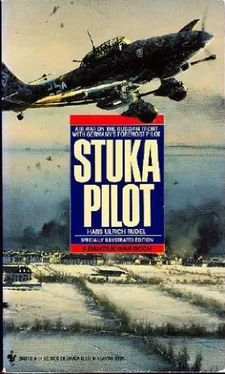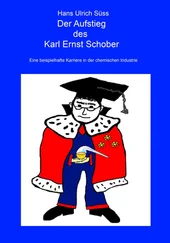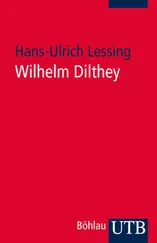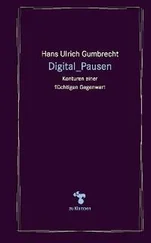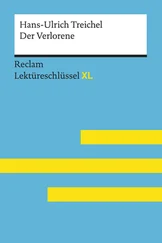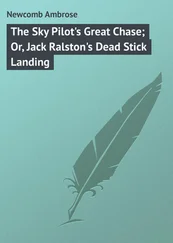“You see how envious the others are of me and the awkwardness of my position? At a conference the Führer said that he was creating a new and unique decoration for you because your achievement is unique. Whereupon the representatives of the other services objected that the recipient is a soldier of the Luftwaffe whose problems are the cause of so many headaches. They wanted to know whether it was not at least theoretically possible for a soldier belonging to one of the other services to earn this distinction? So you see what I am up against.”
He goes on to say that he would never have believed I could induce the Führer to change his mind about letting me go on flying. Now that I have his authorization he could not himself renew his prohibition. He begs me, as he has done repeatedly before, to accept the appointment offered me to command the attack units. But seeing that I have got round the Führer I do not think he seriously believes he will win me over today.
In the late afternoon I am on board the special train for Berlin where my aircraft is waiting to carry me back to my comrades at the front. I am in Berlin for only a few hours, but that is long enough to attract a whole mob of “Gold Oak Leaves rubbernecks” as the story has already been given out in the press and on the radio. In the evening I meet Ritter von Halt, at this time Leader of German Sport. He tells me that after prolonged endeavor he has succeeded in convincing Hitler that I ought to assume the leadership of the Reich sport movement at the end of the war. When my war experiences have been written and I have initiated my successor in my present field of activity I am to be offered the post.
I fly by way of Görlitz, stopping to see my family and taking off again for Budapest on the same day as reports from this sector of the front are very grave. The Wing has been paraded when I land, so that the senior squadron leader may congratulate me in the name of the unit on my new honor and promotion. Then into the air again on a sortie in the Budapest area.
“If the Russian flak only knew how much gold and diamonds was flying overhead,” said one of the ground staff with a grin, “you can bet they would shoot better and exert themselves more.”
Some days later I receive a message from the Hungarian Leader, Szalaszy, inviting me to his H.Q. South of Sopron. General Futterer, commanding the Hungarian air force, and Fridolin accompany me. In recognition of our operations against Bolshevism in Hungary he invests me with the highest Hungarian military decoration, the Medal for Bravery. This has hitherto been awarded to only seven Hungarians. I am the eighth to receive it and the only foreigner. The grant of an estate which goes with the award does not interest me much. It is to be presented after the war and doubtless it will become a holiday resort for the unit.
Shortly before the middle of January we get alarming reports that the Soviets have launched an offensive from the bridgehead at Baranov and have already made a deep penetration thrusting towards Silesia. Silesia is my home. I request an immediate transfer of my Wing to this sector of the front. No definite orders come through until 15th January when I am instructed to move the unit, with the exception of One Squadron, to Udetfeld in Upper Silesia . Being short of transport aircraft, we take the first shift and the armorer personnel with us on board our Ju. 87s so as to be ready for operations the moment we arrive, landing en route at Olmutz to refuel. When we are over Vienna the skipper of the anti-tank flight comes through over the R/T:
“I shall have to land… engine trouble.”
I am very annoyed at this, not so much because I can make a shrewd guess that the fact that his fiancee lives in Vienna has contributed to the misbehavior of his engine, as because my operations officer, Pilot Officer Weisbach, is traveling in his aircraft. This means that Weisbach will not be with me when we land on our new airfield and I shall again have to be bothered with that confounded telephone!
We approach our destination above the familiar, snow clad slopes of the Sudeten. Who would ever have thought I should one day be flying on operations over this region? When we were over the endless steppes of Russia—1250 miles from home—and the first retreat became necessary we used to say jokingly: “If this goes on we shall soon be based on Krakau.”
We regarded this town as a typical L. of C. supply base with all the amenities associated with such a town and possessing a certain attraction for some—at least for a few days. Now our jest has actually come true, even worse. Krakau now lies a long way behind the Russian lines.
We land at Udetfeld. I learn very little from the air division stationed here. The situation is confused, communications with our forward units being mostly cut. They tell me that Russian tanks are already 25 miles east of Tschenstochau, but nothing is yet known for certain as is always the case when things have got out of hand. The Panzer “fire brigade” in this sector, the 16th and 17th Armored Divisions, is at the moment isolated and fighting desperately for its existence, unable to come to the aid of the other Divisions. The Russian drive seems again to have been mounted on a massive scale; overnight they have penetrated the defense positions of the 16th and 17th Panzer Divisions and consequently our air attacks will have to be carried out with the greatest caution, for the fact that a unit is far behind the apex of the Russian drive does not guarantee its being an enemy.
They may well be units of ours trying to fight their way back. So I order all pilots to make certain by low level flying before attacking that they are really Soviet troops. We munition before leaving Hungary, but there is as yet no sign of our tanker lorries. I glance at my petrol gauge: we shall just have enough petrol for a short sortie. Twenty minutes after landing at Udetfeld we take off on our first sortie in this area. We are now in sight of Tschenstochau. I am searching the roads running eastward, where the Russian tanks have been reported. We fly low over the houses of the town. But what on earth is going on there? There is a tank moving along the main street, it is followed by a second and then a third. They look very like T 34s, but surely that is not possible. They must belong to the 16th and 17th Panzer Divisions. I circle round once more. Now no mistake is admissible; they are T 34s sure enough with infantry perched on top of them. There is no doubt that they are Ivans. They cannot be captured enemy tanks which we are using to supplement our own, for if this were so they would identify themselves by firing Vereys or showing the swastika. My last hesitation is dispelled when I see that the snipers mounted on them are opening fire at us. I give the order to attack. We must not drop bombs inside the town; there is always the chance that the population is still there, that the people have been taken by surprise and have not been able to evacuate the town. The high trolley cables and the tall houses with wireless aerials and other obstructions make low level attack with our cannon-carrying aircraft extremely difficult. Some of the T 34s career in circles round the blocks of houses so that one is apt to lose sight of them when coming in to dive. I shoot up three of them in the centre of the town. These tanks must have come from somewhere; the first of them certainly did not enter the town alone. We fly on eastward following a railway line and a road. Only a few miles beyond the town the next party of tanks are rolling forward in front of a convoy of lorries with infantry, supplies and A.A. guns. Here in the open country we are in our element and give the tanks an unwelcome surprise. Gradually the light begins to fail and we return to base. Eight tanks are burning. We have run out of ammunition.
Читать дальше
